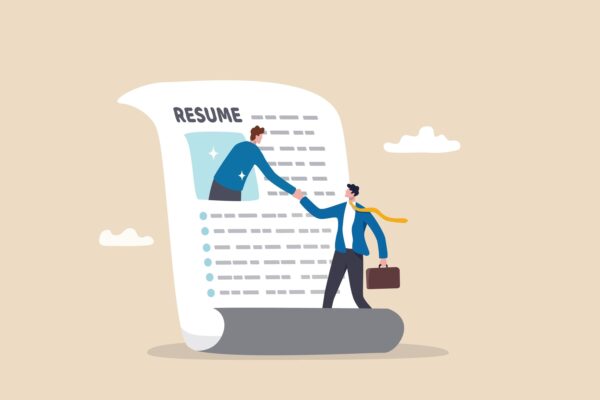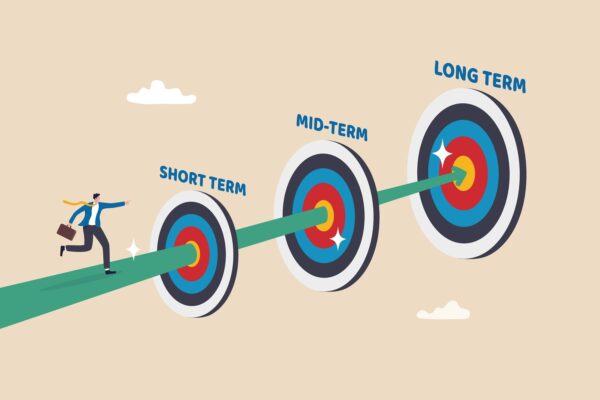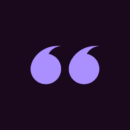In a time of rapid company growth, ensuring new hires align with the long-term vision is paramount. An executive director emphasizes the importance of conducting behavioral interviews to identify core values, setting a solid foundation from the start. From there, insights from a diverse group of 19 experts reveal various methods to maintain this alignment, culminating with a product leader underscoring the necessity of ensuring enthusiasm for the future vision. Explore these insights to understand how to effectively vet candidates for both cultural fit and future goals.
CONDUCT BEHAVIORAL INTERVIEWS FOR CORE VALUES
To ensure that new hires align with the long-term growth vision during periods of rapid expansion, companies must prioritize both skills and cultural fit from the beginning. One effective method for evaluating candidates’ alignment with future goals is through behavioral interviews that focus on core company values. We assess how candidates’ past experiences and decision-making processes reflect these values, ensuring they embody a mindset of adaptability, collaboration, and continuous improvement. Furthermore, we discuss their career aspirations to confirm alignment with our long-term vision, ensuring that they are not only suitable for current needs but also prepared for future growth.
Savio Pinto, Executive Director, Talento

USE SITUATIONAL QUESTIONS AND PERSONALITY TESTS
We have two key tools. One is the situational-questions interview we developed while working with Mark Murphy, the author of Hiring for Attitude. This gives us a chance to get a candidate to commit to how they would handle situations that define success or failure with our firm. It is an invaluable part of our hiring toolkit.
We also investigated and weighed numerous personality tests. We settled on the one offered by Criteria Corp. It offers 12 spectrums between 24 personality traits. We have learned to analyze it and identify extreme personalities that do not fit in. It can also be used to understand and coach team members we add. We find the detail offered by this broad-spectrum test to be very useful in bringing the right team members onboard. Using these tools in tandem helps us pick the perfect candidates for our firm.
Matthew Davis, Business Lawyer and Firm Owner, Davis Business Law
IMMERSE CANDIDATES IN COMPANY NARRATIVE
To ensure new hires align with the long-term growth vision during rapid expansion, we focus on a unique approach by immersing them in our company’s narrative and future aspirations. During the recruitment process, candidates are introduced to key elements of our strategic roadmap through storytelling sessions that engage them with our goals and culture.
We also employ a specific exercise where candidates collaborate on a project with existing team members, allowing us to observe their adaptability and innovative thinking in a simulated work environment. This interaction highlights their potential to resonate with our cultural values and creative vision, offering insights into how they might contribute to our objectives.
By placing them in a context that mirrors real company scenarios, we gain a more nuanced understanding of their compatibility with the ethos that drives us forward. Through these tailored experiences, we are able to select individuals who not only possess the necessary skills but also share a genuine enthusiasm for our mission.
Valentin Radu, CEO and Founder, Blogger, Speaker, and Podcaster, Omniconvert
INCORPORATE EFFECTIVE BEHAVIORAL ASSESSMENTS
I’m currently spearheading our ambitious expansion with the opening of over 50 new branches in 2024. Drawing inspiration from James Collins’ concept of “getting the right people on the bus,” we’ve incorporated an effective behavioral assessment into our hiring process. This approach helps ensure that every new hire not only aligns with our strategic goals but also shares our core values, which is crucial during such rapid growth. By carefully selecting individuals who fit our culture, we nurture a team that is well-equipped to drive forward our long-term vision.
Joel Cruz, President and Managing Director, SAFC
ASK ABOUT HANDLING RECURRING ANNOYANCES
One way we vet candidates for cultural fit and alignment with long-term goals is by asking them how they would handle a small but recurring annoyance in the office, like a coffee machine that’s always out of order or a colleague who talks too loud.
Their answer reveals more than you’d think—it shows how they approach small challenges, how they fit into the day-to-day environment, and whether they have the patience and adaptability for long-term growth.
The people who find creative, non-complaint-driven solutions tend to have a mindset that fits both the culture and future vision.
Simple, but telling.
Austin Benton, Marketing Consultant, Gotham Artists
EVALUATE CULTURAL FIT THROUGH WRITING EXERCISES
One key way we ensure new hires support our growth vision is through assessing cultural fit during the interview process. For our most recent internship position, we had candidates complete a writing exercise that allowed us to evaluate how they think and approach problem-solving. We were looking for candidates who took initiative, were detail-oriented, and could communicate complex ideas clearly.
Beyond technical abilities, we evaluated the intern candidates based on how well they aligned with our core company values: innovation, collaboration, and integrity. We asked values-based questions during the interviews to gain insights into the candidates’ motivations and work ethic. For the selected intern, we could see from her answers that she approached her previous work with a growth mindset, sought out feedback, and was eager to learn. These qualities aligned well with our goals of nurturing talent and continuously improving.
By focusing our hiring process on assessing cultural fit and values alignment in addition to skills and experience, we can bring on interns and new employees who will support and contribute to our long-term vision of becoming leaders in our industry through innovation and excellence. Their unique perspectives and strengths will help propel our growth for years to come.
Sreejita Saha, Content and Digital Marketing Manager, Mitt Arv

TEST CANDIDATES’ ABILITY TO HANDLE PRESSURE
The quality of your employees can be easily tested during growth stages when the company requires them to juggle multiple tasks, departments, and deliveries constantly for an extended time period. So, whenever I hire a new employee, I check directly for their ability to handle pressure.
During interviews, we give case studies and discuss the responses of candidates about how they would react and make a decision in that particular situation. I gauge how they react to an increase in workload and whether they see this as an opportunity to grow or a setback, leaving their comfort work zone. Specifically, I try to filter candidates who not only want to grow with the company but would also motivate others to embrace the extra challenges.
Plus, I’m always looking for flexible employees who are willing to travel to nearby neighborhoods for moving projects and complete both day and night shifts as the situation demands.
By discussing the case studies with them, I’m always noticing their first reaction. While candidates can try to butter up by making false promises of being “hard-working,” their past instances of the expansion phase can give me a clear picture too.
Ryan Carrigan, CEO and Founder, moveBuddha
CLARIFY CULTURE AND VISION IN BRANDING
I have a couple of tips here. First, make sure that your company culture and long-term vision are clear in your employer branding. Also, include this information within your job postings. This will help you to attract candidates who already align with your values and vision and are likely to be a good fit for your culture.
Using pre-hiring assessments, like personality tests or situational judgment tests, can be very beneficial for ensuring cultural fit and alignment with future goals. They’re especially useful during quick-growth periods when you need to hire more people more often than you normally would. Pre-hire assessments give you another metric you can use to compare candidates side by side, helping you to make faster hiring decisions as well as better ones.
Taking the steps above will help bring you a pool of candidates that are likely to be a good long-term fit. You can confirm this and identify the strongest hires by asking the right questions during interviews. This is a chance to hear about candidates’ values, how they fit into a workplace team, and how they would approach common situations they’ll face in the role, all of which can be very useful information when you’re hiring for the future.
Matt Erhard, Managing Partner, Summit Search Group
ASK QUESTIONS BEYOND BUSINESS IN INTERVIEWS
To ensure that new hires are aligned with the broader culture of your company, consider asking questions during the hiring process that have little to do with business.
As a recruiter, I see companies that require a multipronged interview process, but still manage to eschew inquiries about a candidate’s ethos. I’m consistently suggesting a few additional queries that help to uncover applicants’ personal views and long-term goals. For example, hobbies: A person’s hobbies say a lot about who they are and can give a great indication of how well they’ll fit into a business.
Even if your workforce is remote and rarely gets together, understanding how a candidate relaxes in their off-time can help you build a profile of their personality and drive. Someone who chooses to stay home and game online is typically introverted but may be excellent at priming processes for efficiency. On the other hand, a soccer player is likely a team member adept at falling into line to meet a singular goal.
Rob Reeves, CEO and President, Redfish Technology
HIRE BASED ON CHARACTER OVER SKILLS
We are committed to hiring based on character rather than solely on skills. This has been fundamental in building a strong, cohesive team that aligns with our company’s values and culture. I firmly believe that skills can be taught and developed over time, but character is inherent.
When I interview potential team members, I prioritize their integrity, work ethic, and attitude. I once hired a candidate who didn’t have extensive technical experience but demonstrated exceptional problem-solving abilities and a genuine desire to learn. This individual quickly adapted to our work environment, embraced our company values, and became a valuable team player.
By focusing on character, we have created a workplace where trust, collaboration, and mutual respect thrive. This habit supports a positive company culture, as team members feel supported and valued for who they are, not just what they can do. It also enhances employee retention, as individuals who align with our values are more likely to stay engaged and committed to the company’s mission.
Lisa Purvins, Owner, Pro-Tech Heating & Cooling
USE APPRENTICESHIP PROGRAMS FOR CULTURAL FIT
One way we vet candidates for cultural fit and alignment with our future objectives is through our apprenticeship program.
When we bring on apprentices, we evaluate their technical skills and potential, as well as assess their values and attitudes during the training process. I personally invest time—working a few hours a couple of times a week—to train these new apprentices. This hands-on approach allows me to observe how they interact with others, their willingness to learn, and their commitment to teamwork. It gives us insight into whether they share our core values, such as integrity, collaboration, and a strong work ethic.
We also engage apprentices in discussions about our company’s vision and goals. By articulating our long-term growth strategy and encouraging them to share their aspirations, we can determine if their personal objectives align with our mission. By focusing on cultural fit from the start, we can build a strong, unified team that is motivated to contribute to our company’s success as we expand.
Tim Hodnicki, President, Electrical Experts
PRIORITIZE SCENARIO-BASED INTERVIEWS
We prioritize scenario-based interviews to assess alignment with our long-term vision. Candidates are presented with hypothetical future challenges and opportunities our company might face. Their responses reveal not only problem-solving skills but also how they envision our growth trajectory.
For example, we might ask how they’d approach entering a new market or scaling a particular product line. This gives insight into their strategic thinking and whether it aligns with our goals.
We also involve team members from different departments in the interview process. This helps gauge how well candidates collaborate across functions—a crucial skill for our fast-paced, integrated approach to growth.
This method has significantly improved our retention rates and ensured new hires contribute meaningfully to our evolving vision from day one.
Yoyao Hsueh, Founder, Topical Maps

IMPLEMENT VISION ALIGNMENT EXERCISES
We focus on transparency during the hiring process to ensure new hires are aligned with our long-term vision, especially during periods of rapid expansion. One method we’ve implemented is a unique “vision alignment exercise” as part of our interview process. This exercise asks candidates to solve a hypothetical problem the company might face in two to five years, encouraging them to think beyond short-term goals.
We’re not just testing skills here; we want to see how they understand our vision and if their thinking naturally aligns with our growth strategy. The key is to measure their long-term mindset. Do they prioritize quick wins, or are they willing to consider more sustainable solutions, even if the results take longer to materialize? This approach allows us to assess cultural fit by gauging whether a candidate shares our emphasis on lasting impact over temporary success.
The exercise also highlights their ability to think proactively rather than simply reacting to the present. By evaluating how candidates envision and contribute to the company’s future, we’re not just hiring for now but ensuring they’ll grow with us.
Raviraj Hegde, SVP of Growth and Sales, Donorbox
FOCUS ON LONG-TERM IMPACT IN INTERVIEWS
Since we specialize in wills and estate planning, we look for individuals who have a thorough grasp—or at least a genuine interest in—the lasting impact of their work beyond the immediate task at hand. During the interview process, we ask candidates to reflect on how they’ve contributed to something that outlasted their involvement, whether in their previous jobs or in their personal life. This isn’t about typical accomplishments, but about their mindset on creating long-term value.
What usually surprises people is that we focus less on whether someone has extensive technical expertise in our field and more on whether they can envision the future in a way that is consistent with our practice. Estate law is about helping clients secure their family’s future, and if a candidate doesn’t naturally consider the long-term effects of their decisions, that can be a red flag for us. This is a subtle but important aspect of the cultural fit that goes beyond simply checking off talents on a resume.
Oliver Morrisey, Owner and Director, Empower Wills & Estate Lawyers
ASK SCENARIO QUESTIONS FOR TRACK RECORD
When you’re scaling up, you’re not looking for people who say they can do it. You’re looking for people with a track record in doing it systematically so you don’t risk them burning out and leaving.
One of the things we do is scenario questions. For example, “Let’s say you are given a project that requires skills you have limited experience with. The team is counting on you to deliver results. How would you approach this challenge to ensure you not only meet the project requirements but also contribute to your personal and professional growth?”
We also ask them about their previous work experiences that had similar goals. For example, “What does a growth mindset mean to you, and how have you demonstrated this in your previous positions?”
Lana Rafaela Cindric, Growth Associate, RevBoss
INCORPORATE CORE VALUES IN HIRING PROCESS
An effective strategy I’ve implemented is incorporating our core values into every stage of the hiring process. From the initial job posting to the final interviews, we communicate what we stand for and what we envision for the future of the company.
To vet candidates for cultural fit, we conduct immersive interviews that focus on their skills, motivations, and aspirations. One approach I find particularly effective is asking candidates to describe a time when they faced a challenge that tested their integrity or commitment. This helps us gauge whether their values align with ours and whether they can thrive in our dynamic environment.
We also actively seek candidates who demonstrate a growth mindset and adaptability. In our rapidly changing industry, these traits are essential.
Neil Passey, Director, LOLER Examinations
USE VALUES-BASED INTERVIEWING
To ensure that new hires align with long-term growth during periods of rapid expansion, companies should focus on a strategic hiring process that prioritizes both cultural fit and future potential. A powerful method is values-based interviewing, which goes beyond assessing skills and experience to explore how candidates align with the company’s core values and vision. This helps gauge whether candidates resonate with the company’s culture and can thrive as it evolves.
We assess cultural fit and alignment with future goals by using scenario-based questions. We ask candidates how they would handle real-world situations involving adaptability, teamwork, or growth challenges. We also discuss their personal career goals to ensure they match our company’s direction. This approach helps us identify candidates who are not only qualified but also forward-thinking and excited to grow alongside us.
Jessie Zaylia, Founder and CEO, twrk inc.

COMMUNICATE GOALS AND VALUES CLEARLY
We’re clear during the interview process about our company’s goals and how each role supports our broader vision. It’s important that candidates understand how they’ll contribute to the bigger picture.
In terms of cultural fit, we look for people who share our values and have a low-ego, team-oriented mentality. We prioritize candidates who can adapt and contribute across different areas, taking ownership beyond their immediate roles. We also use our network to assess whether someone fits within our culture and long-term goals.
We focus on finding individuals who thrive on consistent, sustainable progress, contributing steadily to our growth over time. This approach helps ensure we’re building a strong team that aligns with our long-term vision.
Benjamin Fine, Co-founder, Formsort
ENSURE ENTHUSIASM FOR FUTURE VISION
I realized that skills alone aren’t enough; finding people who share enthusiasm for our future is very important. When I led teams at Amazon in AGI, one of the top fields today, we made sure candidates were truly invested in our vision, not simply looking for a job. During interviews, we openly discuss our plans for AGI and see if their enthusiasm matches ours. It’s easy to spot when someone genuinely sees themselves as part of the journey. If they do, it’s a sign that they’re ready to grow with us, now and in the long run. This helps build a team that’s committed and aligned with our goals.
Siddharth Kashiramka, Product Leader, AGI, and Mentor @ Startup Accelerator
Featured connects subject-matter experts with top publishers to increase their exposure and create quality, ready-to-publish Q&A content.














































